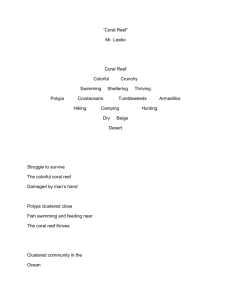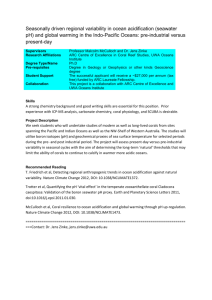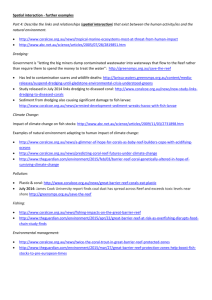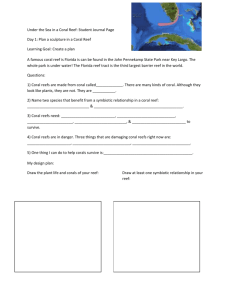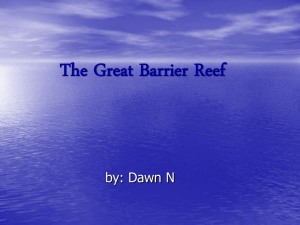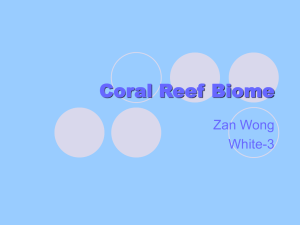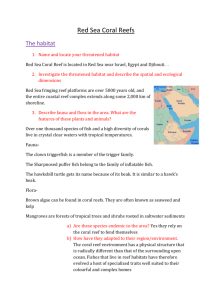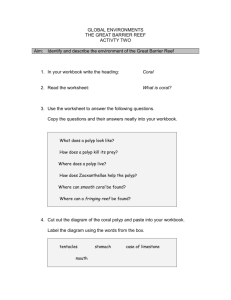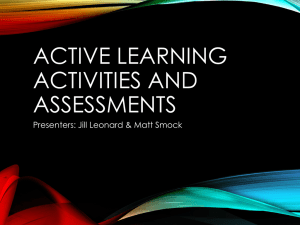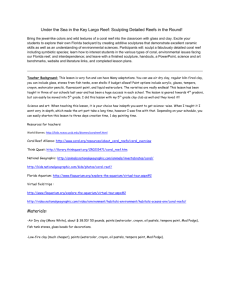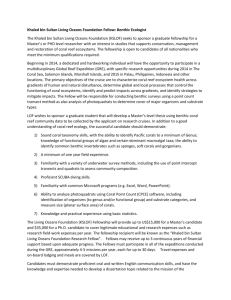Quantifying the impacts of coastal processes and climate change on
advertisement
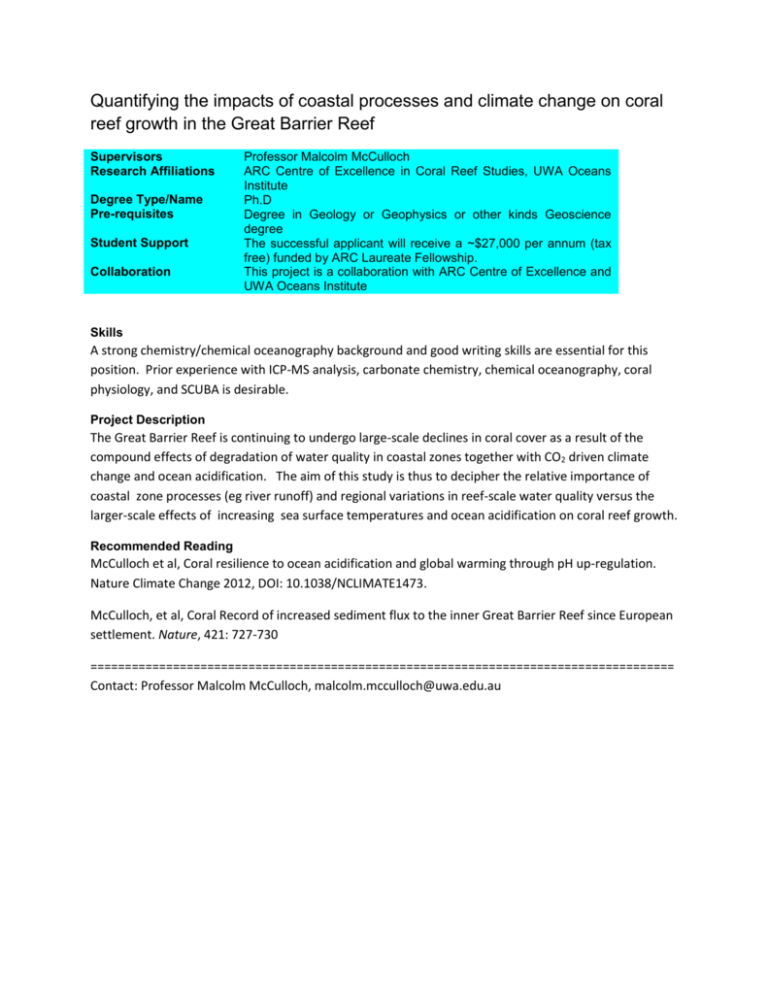
Quantifying the impacts of coastal processes and climate change on coral reef growth in the Great Barrier Reef Supervisors Research Affiliations Degree Type/Name Pre-requisites Student Support Collaboration Professor Malcolm McCulloch ARC Centre of Excellence in Coral Reef Studies, UWA Oceans Institute Ph.D Degree in Geology or Geophysics or other kinds Geoscience degree The successful applicant will receive a ~$27,000 per annum (tax free) funded by ARC Laureate Fellowship. This project is a collaboration with ARC Centre of Excellence and UWA Oceans Institute Skills A strong chemistry/chemical oceanography background and good writing skills are essential for this position. Prior experience with ICP-MS analysis, carbonate chemistry, chemical oceanography, coral physiology, and SCUBA is desirable. Project Description The Great Barrier Reef is continuing to undergo large-scale declines in coral cover as a result of the compound effects of degradation of water quality in coastal zones together with CO2 driven climate change and ocean acidification. The aim of this study is thus to decipher the relative importance of coastal zone processes (eg river runoff) and regional variations in reef-scale water quality versus the larger-scale effects of increasing sea surface temperatures and ocean acidification on coral reef growth. Recommended Reading McCulloch et al, Coral resilience to ocean acidification and global warming through pH up-regulation. Nature Climate Change 2012, DOI: 10.1038/NCLIMATE1473. McCulloch, et al, Coral Record of increased sediment flux to the inner Great Barrier Reef since European settlement. Nature, 421: 727-730 ===================================================================================== Contact: Professor Malcolm McCulloch, malcolm.mcculloch@uwa.edu.au

